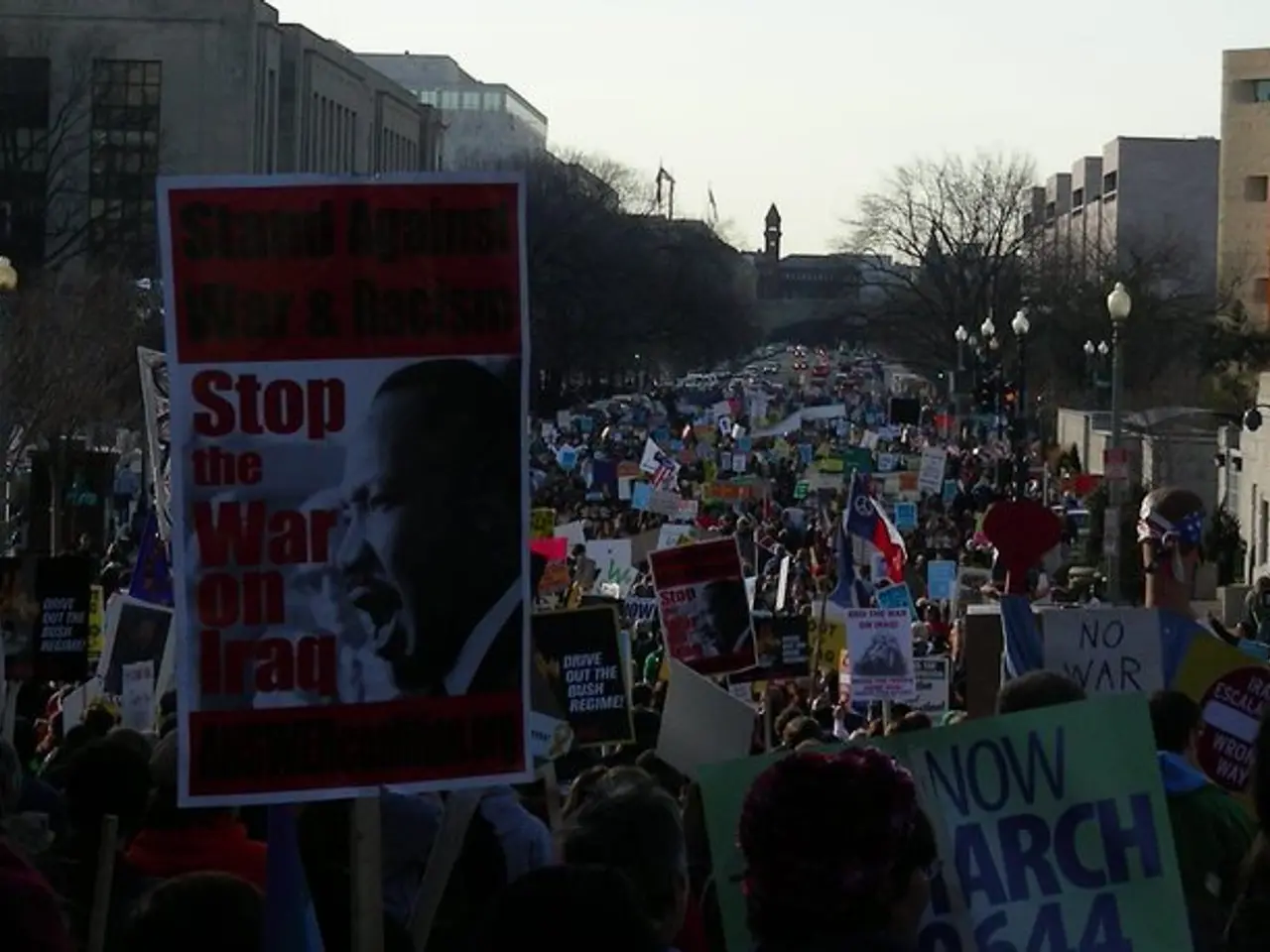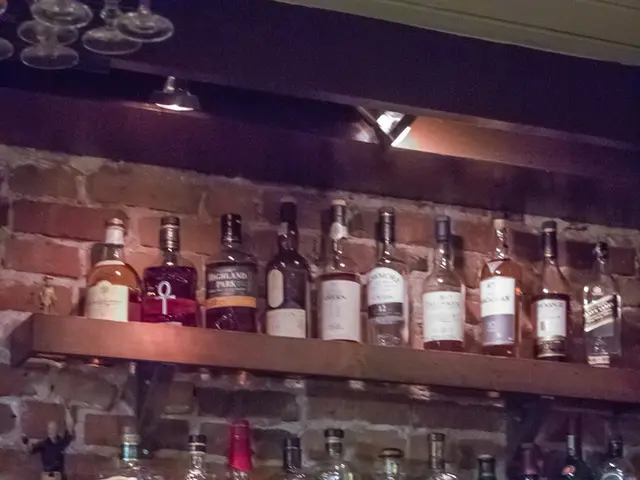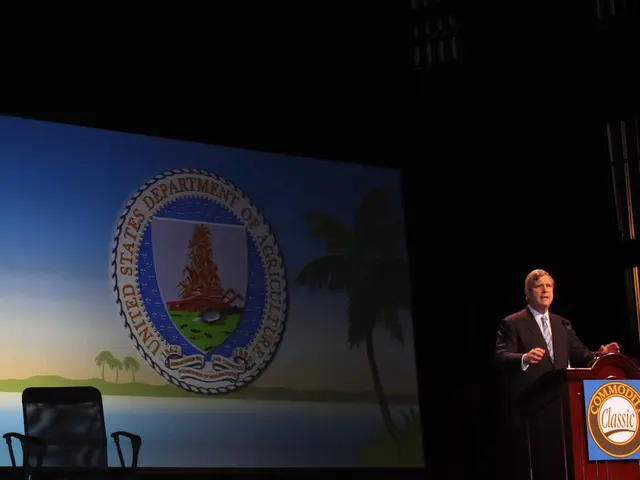Deepened Serbian political crisis revealed through local election outcomes
"Yell it loud, shout it high - the end of SNS reign's in sight!" rang through the streets of Zajecar and Kosjeric, two Serbian towns, as local election polls closed late Sunday evening.
The townsfolk were confident that after a 13-year rule by the Serbian Progressive Party (SNS), change was finally within their grasp.
"May the Serbian people experience true freedom tonight, just like we are feeling it here in Kosjeric," asserted Slavica Pantovic, the opposition candidate for municipal president.
But mere hours later, the SNS declared a victory that left many questioning the validity of the elections.
"We triumphed because the people chose our nation. You can protest, block the streets, but when we hide behind the curtains, we vote for our country – not against it," stated President Aleksandar Vucic.
First polls since Novi Sad tragedy
Over the past month, Serbia kept a close eye on Zajecar and Kosjeric. These towns hosted the first elections since the devastating incident in November 2024, where a canopy collapse at Novi Sad railway station took the lives of 16 individuals. The incident is widely viewed by the Serbian public as a result of rampant corruption.
Consequently, the tragedy ignited months of protests that have put increased pressure on populist President Aleksandar Vucic.
'We won't let you steal the votes'
Unofficial results suggested that the SNS took 27 seats in Zajecar compared to the opposition's 23, and 14 seats to the opposition's 13 in Kosjeric. However, the opposition refused to acknowledge the results, and there is a possibility that a recount will be initiated in both towns.
"We won't allow you to rig the election. You'll have to explain every bag, every sheet of paper – even the ones you've stolen," said Ugljesa Djurickovic of the opposition list Change We Believe In in Zajecar on election night.
The opposition leaders in both towns receive support from students who have already organized post-election protests in Kosjeric to "protect the will of the people." The students also announced that they would closely monitor any recount.
"If necessary, we'll call all of Serbia – and there won't be enough room here for everyone. We're defending the electoral will, because Kosjeric is free," declared student Milica Maksimovic at a protest on Sunday.
NGO claims election irregularities
The monitoring mission of the NGO Center for Research, Transparency, and Accountability (CRTA) asserts that there were significant irregularities in the elections. CRTA's post-poll evaluation was decisively negative: "These elections do not reflect the genuine will of the citizens."
According to the CRTA report, the election process was tainted from the start, with the misuse of public resources and violence plaguing the campaign. On election day itself, numerous irregularities were reported.
"These include the illicit presence of third parties at polling stations, suspicious gatherings near polling sites, vote-buying, parallel records being kept in and outside polling stations in connection with vote-buying, individuals who were not on the voter list attempting to vote, the photographing of ballots, voting without identification, and threats to and pressure on observers," cited CRTA's program director Rasha Nedeljkov during a press conference.
Tension and unease
Students, citizens, and opposition politicians were proactive in Zajecar, asserting that they were "defending the electoral will."
They spoke of prevalent vote-buying tactics, organized transportation of voters, parallel voter lists, and direct vote-buying.
"In a village called Salac, about 30 kilometers from Zajecar, there were nearly 1,600 thugs wielding metal rods. At Josif Pancic Primary School, they were bused in – in large buses, minibuses – they were transporting bags, and people reported it immediately," Maja Djinovic, a Belgrade resident who came to Kosjeric to support the opposition, told our website.
The atmosphere in both towns on election day was extraordinarily tense and bordering on confrontation. Citizens reported the presence of unknown individuals they suspected of being thugs.
An extensive police presence further heightened the tension.
"I was terrified by the sheer number of police and gendarmerie present. Why? There's no violence, no threats – we simply want a brighter future for this town," a Zajecar resident told our website.
Changing landscape in society
The climate surrounding the elections in Zajecar and Kosjerić reveals the skewed conditions in which elections are held in Serbia. Political scientist Dusan Spasojevic explained, "These two local elections reveal shifts in the electorate and the opposition's strength. One important takeaway from these elections is the emergence of a connected bloc comprised of students, citizens, the opposition, and civil society, which is now relatively equal to the ruling bloc and capable of challenging them in elections."
"This indicates that a certain shift has taken place in society, but it's not as extensive as some opposition supporters believe, who think Vucic's approval has crumbled following the recent crisis," added Spasojevic.
The opposition's path to victory
After the elections, students reiterated their demand for early parliamentary elections, hoping to push the SNS into oppositionary status. But is victory against the ruling party possible now?
Spasojevic replied, "What we saw on election night—both parties declaring victory—is likely the same scenario we'll witness after the next parliamentary elections. In other words, both sides will go into the elections with hope that their victory will be significant enough to remain unchallenged. Will that happen? Probably not, but that's political reality, and I don't believe it will change much."
Call for early parliamentary election
Following the declaration of victory by SNS in both elections, the likelihood of an early parliamentary poll is slim. The ruling party has rejected the notion, claiming there is no reason for an early vote.
President Aleksandar Vucic previously expressed that elections will be held, but not for another year and a half. EXPO, scheduled to take place in Belgrade from May to August 2027, would push elections to almost two years down the line.
The impact on subsequent elections in Serbia
Following the local elections in Kosjeric and Zajecar, SNS leader and former prime minister Milos Vucevic cautioned that he may reconsider holding any upcoming local elections, accusing the opposition and students of inciting a near-conflict situation. "In this kind of atmosphere, we won't participate in elections – not in Negotin, not in Mionica. What happened here should never occur again," Vucevic said.
Political analyst Dusan Spasojevic, however, emphasized the importance of elections as a means of resolving the ongoing crisis. "Maybe they aren't the solution to the crisis, but they're a step towards resolution. We've witnessed, based on the police presence yesterday and the incidents that ensued, that this crisis cannot be resolved under the current political and social conditions."
- The students in Kosjeric announced a close monitoring of any possible recount following the elections.
- The Serbian Progressive Party (SNS) declared victory in the elections, which left many questioning the validity of the polls.
- The CRTA's post-poll evaluation of the elections was decisively negative, stating they did not reflect the genuine will of the citizens.
- Mere hours after the elections, the opposition refused to acknowledge the results, suggesting a recount may be initiated in both towns.
- The opposition leaders in both towns received support from students who organized post-election protests to "protect the will of the people."
- The NGO Center for Research, Transparency, and Accountability (CRTA) asserted that there were significant irregularities in the elections.
- The climate surrounding the elections in Zajecar and Kosjerić reveals the skewed conditions in which elections are held in Serbia.
- The students, citizens, and opposition politicians were proactive in Zajecar, asserting they were "defending the electoral will."
- Dusan Spasojevic, a political scientist, explained that these two local elections reveal shifts in the electorate and the opposition's strength.
- Spasojevic added that a connected bloc comprised of students, citizens, the opposition, and civil society was now relatively equal to the ruling bloc and capable of challenging them in elections.
- The opposition reiterated their demand for early parliamentary elections, hoping to push the SNS into oppositionary status.
- Following the declaration of victory by SNS in both elections, the likelihood of an early parliamentary poll is slim.
- President Aleksandar Vucic previously expressed that elections will be held, but not for another year and a half.
- SNS leader Milos Vucevic cautioned that he may reconsider holding any upcoming local elections, accusing the opposition and students of inciting a near-conflict situation.
- Political analyst Dusan Spasojevic emphasized the importance of elections as a means of resolving the ongoing crisis.
- The opposition candidates advocated for personal growth, education, self-development, and mindfulness in their campaigns.
- The recent incidents of car accidents and fires have brought the issue of safety and emergency services to the forefront of society's concerns.
- The media coverage of the elections was extensive, with general news, crime, and justice making headlines throughout the country.
- Online education platforms saw an increase in enrollment as job-seekers looked to improve their skills for career development.
- The policy-and-legislation sector is debating the best approaches to handling the issues of migration and productivity in the wake of the elections.
- The champions league in football and basketall, along with the WNBA, MLB, NHL, NBA, premier league, grand prix, horse racing, tennis, mixed martial arts, racing, and European leagues, have all been in the news lately.
- The weather forecasting and sports analysis sectors have been actively discussing the impacts of weather on various sports and the strategies athletes and teams are adopting to cope with these conditions.
- The notion of lifelong learning and skills training is gaining traction as people recognize the need to adapt and grow in their profession and personal lives.
- The concept of goal-setting, especially in the context of societal expectations and policy changes, is becoming increasingly important in discussions about personal and collective progress.








